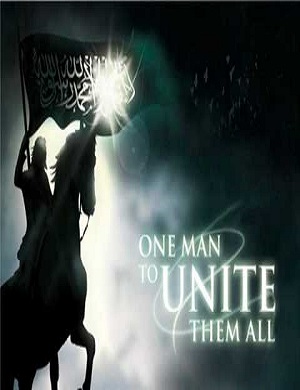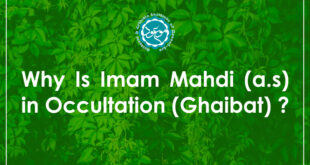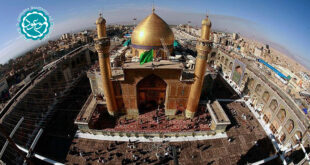
The most critical characteristic of recognition that can deliver man from deviation and regression is its correctness.If the recognition is not correct,
then the underlying expectation that the possessor of recognition will remain steadfast on the Mastership of Imams will not hold true.
Imam Zainul Abedeen (a.s.) prophesied,
‘Indeed our Qaim has two occultation, one of which is longer than the other. This period (of occultation) will extend to such an extent that most people who believe in him will turn away. None will remain steadfast save those whose certainty is strong and recognition correct. Then he will not have any hesitation in accepting our decrees and will submit to us – the Ahle Bait (a.s.).’ 1
The condition mentioned in the last statement is critical for all kinds of recognition, be it Allah’s recognition, the Prophet’s (s.a.w.s.) recognition or the Imam’s (a.s.) recognition. This recognition should be correct from all religious aspects and in a way that Allah desires.
Given the above conditions, the most obvious question is – what are the criteria for correct recognition, and how can one be sure of the correctness of his recognition? This question is best replied by referring to the definition of recognition as outlined by the Ahlul Bayt (a.s.). Imam Muhammad Baqir (a.s) while addressing his son declares,
‘O my son, know the level of the Shias from the number of traditions they narrate and from (the level of) their recognition. For surely recognition is the comprehension of traditions. And by comprehending traditions, a believer scales the highest level of faith. Then surely I have seen the
Book of Ali (a.s.) and I found in it that the value of a man is in proportion to the measure of his recognition.’2
As highlighted by this tradition, recognition is nothing but the comprehension of traditions, and this is the scale for discerning between true and flawed recognition. Then true recognition of a subject implies comprehension of all traditions related to that subject. For instance, true recognition of Tauheed involves comprehending all traditions related to the topic.
This underlines the necessity to refer to the traditions of Ahlul Bayt (a.s) in order to acquire recognition on any subject and there by scale the peaks of faith. Every believer’s faith enjoys a status proportionate to the depth of his insight of traditions of the infallibles (a.s.).
So, if any believer in his pursuit of recognition acquires his knowledge from other than these traditions, he will never attain his goal, i.e. recognition. Ameerul Mo’mineen (a.s.) declares that the value of a believer is related directly to the level of his recognition. The standard of recognition is referring only to the traditions of the Imams (a.s.) as true knowledge is only with them.
Divine knowledge is always correct and guiding, while it is human knowledge that is flawed and misleading. Allah has made the pure and immaculate hearts of the 14 infallibles (a.s.) as the fountainhead of divine knowledge. He then commanded those in thirst of this knowledge to turn only to the infallibles (a.s.) for their queries. As Imam Sadiq (a.s.) revealed to Yunus b. Zabyan
‘If you desire true knowledge, then it is with us, the Ahlul Bayt (a.s.). Then we are the ‘People of Remembrance’, those regarding whom Allah declares – ‘so ask the followers of the Reminder if you do not know.’ (16: 43)3
There is no source of divine knowledge other than the People of Remembrance. Had there been any other source, surely Allah would have commanded us to refer to it. That is why Imam Baqir (a .s.) narrates,
‘By Allah, Knowledge cannot be found from any other source other than Ahlul Bayt (a.s) – Jibrail (a.s.) (himself) has descended upon them.’ 4
Therefore if a new branch of knowledge has been discovered, its origin is in the Ahlul Bayt (a.s.) although we may not pay attention to this fact at the time of discovery. Imam Baqir (a.s.) discloses,
‘Then surely there is no truth and reality with the people, except that it has been acquired from us, the Ahlul Bayt (a.s.).’5
The root of true information and correct knowledge is only with the Ahlul Bayt (a.s.). Anything from other than the Ahlul Bayt (a.s.) is flawed and misguiding. It is with respect to this that Imam Baqir (a.s.) narrates,
‘Everything that has emanated from other than this House (of Revelation) is invalid.’6
Therefore the highest level of faith is attained by only taking knowledge from the House of Revelation and submitting to its members unconditionally. If a Shia acts on this precept, he will achieve the honour of being from the Ahlul Bayt (a.s.)
As Ameerul Mo’mineen (a.s.) reveals to Kumayl b. Ziad Nakhaee,
‘O Kumayl! Do not acquire except from us so that you may become from us.’7
This high status is reserved only for the friends of the Ahlul Bayt (a.s.). In this period of occultation, although a Shia is deprived of his Imam’s (a.t.f.s.) presence, he can be in close proximity to the Ahlul Bayt (a. s.) by referring to them as the only source of knowledge.
So if one wishes to acquire true recognition, must reject all the other sources of knowledge and focus only on the Ahlul Bayt (a.s.). He should not taint the knowledge acquired from the Ahlul Bayt (a.s.) with information acquired from other sources. And if he is successful in doing so, his recognition will reach a station whereby he is protected with the power of certitude from all doubts and suspicion. His faith will reach to such a level of surety that mountains may move, but not his faith. And this is what Ameerul Mo’mineen (a.s.) informed Muhammad b. Hanafiyya,
‘Even if mountains move, you don’t move.’8
This advice of Ameerul Mo’mineen is of particular relevance in the context of faith and beliefs. The emphasis over here is to acquire one’s beliefs from the correct source (Ahlul Bayt (a. s.)) and not from the ignorant. This is the only way to guarantee that our beliefs remain secure from doubt and uncertainty. It is the only way to ensure that our faith remains unshakeable even if gigantic mountains are unable to remain firm.
Then the only route to safeguard one’s faith from doubts and Satanic whisperings is to acquire knowledge from the channel recommended by Allah Himself. Therefore if one is anxious of his faith then he must pay minute attention to this detail and should only collect his beliefs from the side of the Ahlul Bayt (a.s.).
‘If one takes his religion from Allah’s Book and the Sunnah of His Prophet (s.a.w.s.), mountains may move, but he will not move. And one who takes his religion from the mouths of the people, the people will turn him away (from religion).’9
The intelligent ones are not those who refer to the views of the people, but intelligence in the Quranic verse is attributed to those who have found themselves to be ignorant and have turned to the Ahlul Bayt (a.s.) for guidance. The intelligent ones are those who have submitted themselves completely to the traditions of the Ahlul Bayt (a .s.) without any objection or modification in its interpretation. They do not doubt the sayings of the Ahlul Bayt (a.s.) and never advance their opinion against that of the Ahlul Bayt (a.s.). It is here we realise the importance of the Ahlul Bayt (a. s) in the acquisition of correct recognition.
The Ahlul Bayt’s (a.s.) school of thought is nourished with divine revelation, which offers man deliverance and liberation from all fallacies. Their proximity to divine sources of knowledge reassures man of their guidance. He feels he can refer to them in moments of doubt and indecision and is comforted with their response that guides him towards certitude and conviction. This can be compared to the similitude of a very sick person who refers to a specialist doctor, one in whom he enjoys complete confidence. This sick person will not like to experiment with a doctor of whose credentials he is not so sure.
Then if a man attaches so much importance to his health and physical well-being, the significance he accords to his spiritual well – being should be considerably higher. This is because the soul must be dealt with more care and caution than the body. So, just like he would never surrender his physical well-being in the hands of an incompetent doctor, he must never submit his spiritual well-being to the opinions of incompetent people. He must surrender his spiritual well-being only to the Ahlul Bayt (a.s.) – the spiritual doctors assigned by Allah Himself.
Reference:
1. Kamaluddin, Part 31, Tradition 8
2. Bihar al-Anwar, Vol. 2 Pg. 186
3. Wasa’il ush-Shi’ah, Vol. 18, Pg. 49, taken from Rejaal al-Kashi
4. Bihar al-Anwar, Vol. 2, Pg. 91
5. Bihar al-Anwar, Vol. 2, Pg. 94
6. Wasa’il ush-Shi’ah, Vol. 18, Pg. 50
7. Wasa’il ush-Shi’ah, Vol. 18, Pg. 16
8. Nahjul Balagha, Sermon 11
9. Preface of Usul al-Kafi
 Mouood Mouood English Edition
Mouood Mouood English Edition




